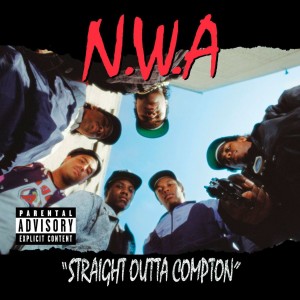Say you open a small business. You run it for a few years, do pretty well, and always pay your debts (especially the rent) on time.
Then you arrive at work one morning to find a bulldozer parked in the pile of rubble that used to be your store.

You might get the impression that something was slightly amiss.
Well, recently, a piñata store in Austin was demolished, without the storeowners’ knowledge and with their possessions still inside. The storeowners, who are Latino, say that the greedy landlords bulldozed the store because they could get more money from the tech companies that are moving into the area.
The storeowners had a lease through 2017 and had just paid the rent for the upcoming month. When confronted about their reckless destruction of the store, one of the landlords (yes, a rich white guy) used the term “roaches” to describe the storeowners. Remember that the storeowners are Hispanic. Clearly, the term “roaches” was not an accident.
The incident shows how Latino neighborhoods are literally and figuratively being displaced for upscale residents. There have been numerous flare-ups in Austin over gentrification, with many Latino leaders claiming that rich newcomers are driving out long-time residents. And there have been similar disputes in New York, Los Angeles and other cities, often in Hispanic neighborhoods that are changing rapidly.
And here’s where it gets conspiratorial.
A recent study implied that Latino neighborhoods are more likely to be gentrified than African American neighborhoods.
Harvard researchers analyzed patterns across Chicago and found that gentrifying neighborhoods tended to be predominantly Latino or white working class, with fewer African Americans.
The study implied that Latino neighborhoods are more likely to be gentrified in the traditional sense (i.e., young white newcomers moving into the area). And they are also more likely to receive the theoretical benefits of gentrification (e.g., urban renewal and municipal investment). No word, however, on what happens to Hispanic residents when the bulldozers get revved up.
Keep in mind that the same study also implied that there is a tipping point, where the percentage of African Americans in a neighborhood either makes gentrification likely or unlikely.
Basically, too many black people keep the white people away.
Why are Latino neighborhoods more attractive to white gentrifiers? Well, there is no hard data on that, and it’s unlikely that a future study will include the question, “Why are you ok moving in next to brown people, but not black people?” Although the answers would be illuminating, to say the least.
The researchers said that in addition to their statistical proof, there is anecdotal evidence that Latino neighborhoods are viewed as more desirable to gentrifiers than African American areas.
For example, the Williamsburg section of Brooklyn — often pointed to as the prime example of gentrification — previously had a large Latino population. That’s not the case anymore, as the cliché of the young hipster inevitably features a white guy (usually with some bizarre nineteenth-century facial hair, but that’s another story).
In response to this dark side of gentrification, some Latino community leaders in Los Angeles launched the “gente-fication” movement (“gente” is Spanish for “people,” but you already knew that).
The idea is that upscale Latinos will stay — or in some cases, move into — Latino neighborhoods and revitalize the area themselves rather than rely on newcomers. The trend has slowly caught on in other cities, such as New York, Houston and Phoenix.
Although results are difficult to quantify, the LA neighborhood of Boyle Heights may be in the midst of a Latino renaissance, due in part to the gente-fication movement. And community activists are attempting to duplicate the neighborhood’s success in other Los Angeles areas.
But the movement has drawn fire for what some claim is an exclusionary, or even racist attitude. After all, if you’re saying that you want a specific racial or ethnic group to move in — whether it’s white, black, Latino, or other — things quickly get uncomfortable.
Where all this will lead is a mystery. Perhaps gentrification will wipe us all out. Or maybe we’ll achieve some kind of balance where newcomers enrich neighborhoods while long-time residents maintain the area’s culture.
In any case, hopefully no more piñata stores will get bulldozed.














